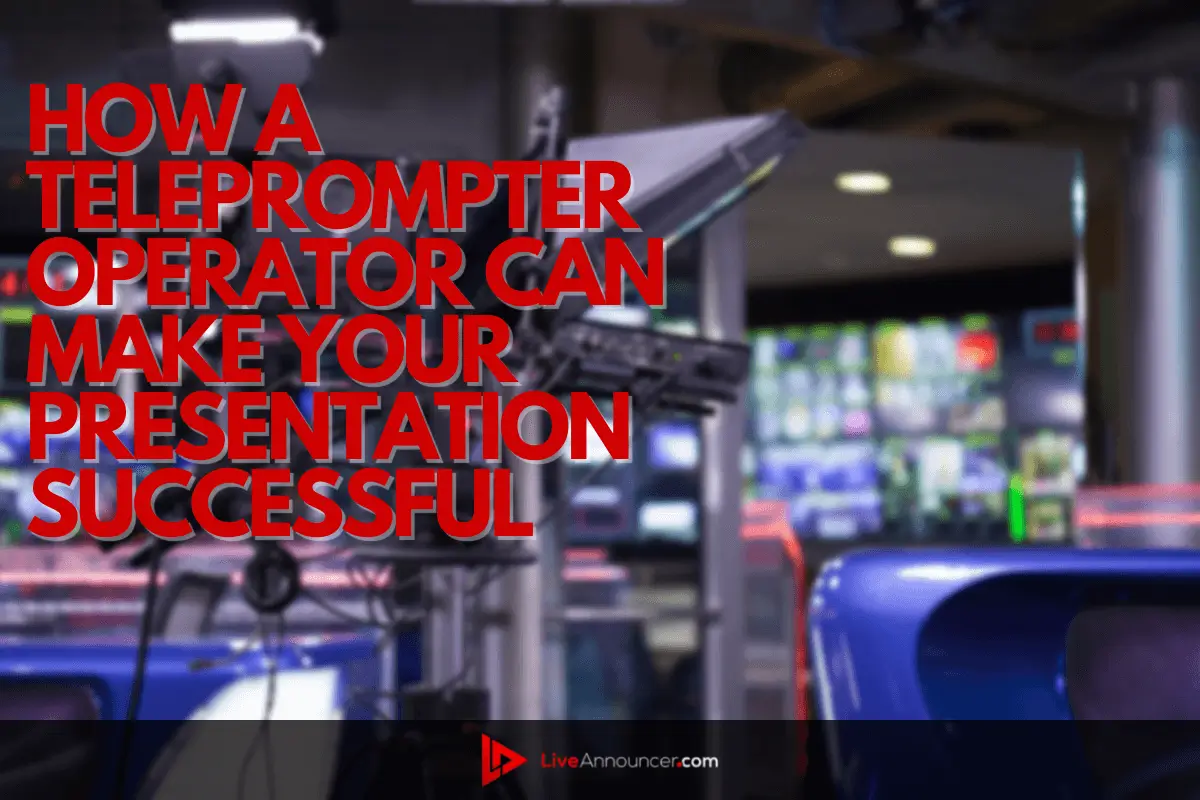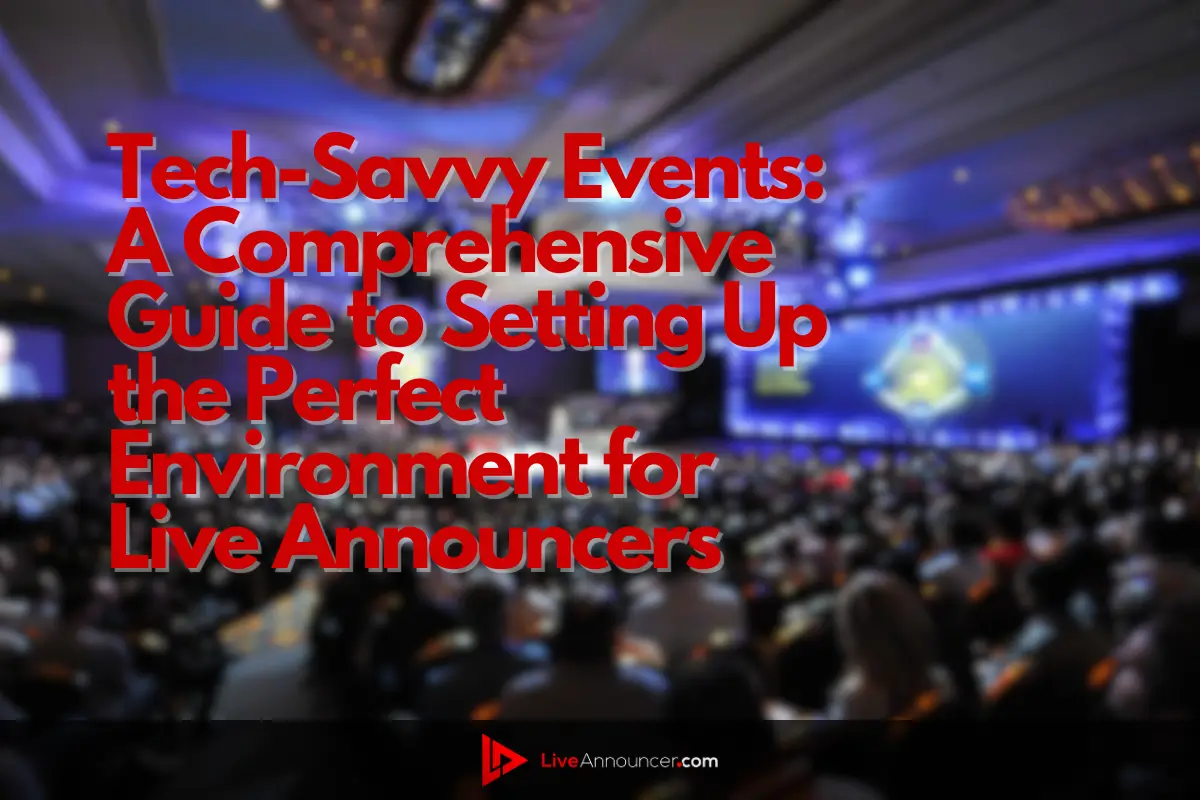
During a major live presentation, your hosts and invited speakers will not always be able to memorize everything they have to say. This is especially the case when you are revising the program up until the last minute.
And chances are, some of the speakers will be prepared, but others will not have had enough time to become familiar with what they will be saying.
Fortunately, they can speak with authority and professionalism by reading from a teleprompter. A teleprompter allows you to maintain eye contact with the audience as you read. Here is some insight into how a teleprompter operator can make your presentation successful.
For context, handwritten cue cards do have their place in many settings. Talk show hosts use them all the time for their nightly monologues, for example.
But a teleprompter is a modern approach for helping presenters with their lines. It's like a virtual, unending paper scroll or unlimited cue cards. Once the text is finalized and ready for presenters, the producer approves it to go into the teleprompter system.
There are three main types of teleprompters:
A floor/stand teleprompter mounts on the floor positioned at an angle. Speakers need to look downward more frequently with this type of setup.
A "presidential" teleprompter involves mirrored glass mounted on a pole, which enables the speaker to look through this glass at the scrolling words. This makes it seem like he or she is looking directly at the audience.
A camera-mounted teleprompter works by aiming text at a pane of glass that's positioned directly in front of the camera lens.
No matter what type of teleprompter you use, the presenter runs the risk of falling behind in the script or missing lines if the words don't appear at the same rate he or she is speaking.
Ideally, you will have time for speakers to rehearse with the teleprompter operator before the event, but this is not always practical or feasible.
A talented, experienced teleprompter operator can make all the difference in pulling off a successful event.
The audience will be hanging onto every word when a speaker begins a presentation. A teleprompter operator has to think fast and be able to accommodate sudden changes. For example, a speaker may ad-lib some remarks mid-way through the script. The operator will have to pause the teleprompter script until the presenter gets back to the official text.
If the teleprompter operator lacks experience and can't keep on track with the speaker, the audience may become bored or confused by what the presenter says.
In a worst-case scenario, members of the audience might laugh inappropriately at the mistakes. You might see them getting up and leaving the presentation if they find it amateurish or poorly produced.
Since a well-trained and qualified teleprompter operator can make or break a presentation, it makes sense to do your research to find one who has years of experience, and a proven track record in helping speakers read their scripts as naturally as possible.



